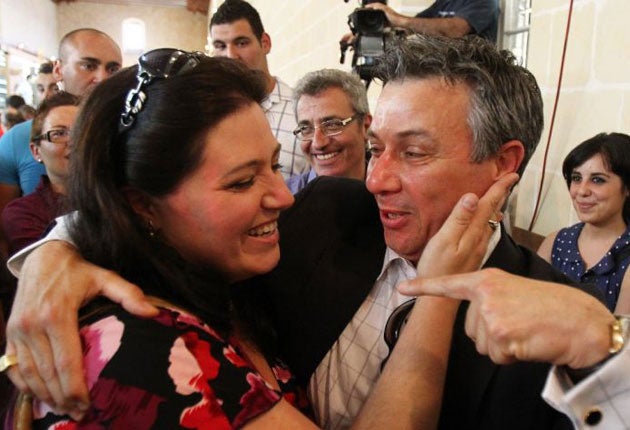Malta to legalise divorce after bitter referendum

Your support helps us to tell the story
From reproductive rights to climate change to Big Tech, The Independent is on the ground when the story is developing. Whether it's investigating the financials of Elon Musk's pro-Trump PAC or producing our latest documentary, 'The A Word', which shines a light on the American women fighting for reproductive rights, we know how important it is to parse out the facts from the messaging.
At such a critical moment in US history, we need reporters on the ground. Your donation allows us to keep sending journalists to speak to both sides of the story.
The Independent is trusted by Americans across the entire political spectrum. And unlike many other quality news outlets, we choose not to lock Americans out of our reporting and analysis with paywalls. We believe quality journalism should be available to everyone, paid for by those who can afford it.
Your support makes all the difference.The staunchly Catholic island of Malta was yesterday set to end its status as the only European nation that does not allow divorce after a narrow "Yes" victory following a bitterly fought referendum campaign.
The Yes camp declared victory after gaining about 52 per cent of the votes after months of campaigning marked by mudslinging and hostility that culminated in an apology by the Church for the way it fought its campaign against the proposals.
The Prime Minister, Lawrence Gonzi, who campaigned against the proposal, conceded defeat soon after the results trickled in yesterday morning. "Even though the result is not what I wished for, now it is our duty to see that the will of the majority is respected," he said. Only three of Malta's 13 electoral districts voted against the proposal to introduce the divorce legislation, which will be among the most conservative in the world.
According to the terms of the referendum, divorce will be granted only if the marriage is irreparable, the couple have been separated for four of the last five years and maintenance and childcare have been agreed on. The matter will now be discussed in parliament.
Malta is the last European nation to legalise divorce. Barring the Vatican, the only other country without divorce is the Philippines. Some 95 per cent of Malta's 412,000 citizens are Catholics. A high degree of hostility marked both sides of the campaign. The drama continued until the last hour of voting on Saturday night, when the left-leaning paper Malta Today broke an embargo to publish an apology issued by the Maltese church.
"To those who had an active role on both sides, we would like to show you our sorrow if anyone felt hurt by any word or action from members of the Church," said the note issued by the Archbishop of Malta, Paul Cremona, and the bishop of Gozo, Mario Grech.
The apology is being seen as an attempt by the church to recover its standing after a campaign in which it was accused by pro-divorce campaigners of unduly exercising its influence to secure a No result.
Dr Grech had earlier called Catholics who were in favour of divorce "wolves in sheep's clothing" and warned that they might not be able to receive communion. About 72 per cent of people in Malta say they go to Mass and nearly all marriages are held at the altar.
The referendum came about as the result of a cross-party initiative by a conservative MP, Jeffrey Pullicino Orlando, and a Labour MP, Evarist Bartolo.
In a nation where politics is deeply divisive, the Yes campaign had shown that it was possible for politicians to work together across party lines, said Deborah Schembri, the Yes movement's chairwoman. "There's never been anything like this," she said. "I think there will be a great change in Maltese politics after this."
She hoped that the legislation would be on the statute books by the end of the year. "The only difficulty I can see is some parliamentarians might vote against despite the referendum but the great majority agree that the will of the people must be carried out," she said.
Opposition leader Joseph Muscat said there were no winners or losers, only a people that believe in tolerance and civil rights. "It is the birth of a new Malta," he said.
Join our commenting forum
Join thought-provoking conversations, follow other Independent readers and see their replies
Comments